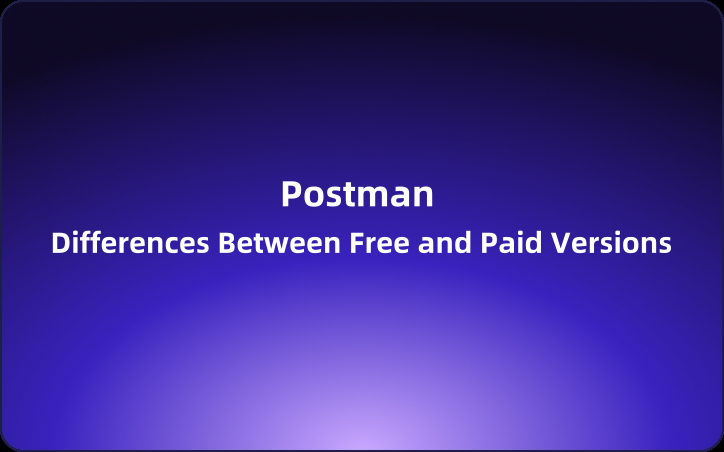The Limitations of Postman's Free Plan: Differences Between Free and Paid Versions
This article aims to fully explain the restrictions of Postman's Free plan and highlight the differences between the free and paid versions.
Postman is a popular tool for API testing, widely used by developers and test engineers for API-related tasks. However, those using the Free plan without purchasing a subscription may encounter several limitations. This article aims to fully explain the restrictions of Postman's Free plan and highlight the differences between the free and paid versions.
What is Postman?
Postman is a tool designed for API developers and test engineers to test APIs. It provides a simple and intuitive interface for calling API endpoints, sending requests, and receiving and analyzing responses. Postman includes all the necessary features for API testing, enabling users to create, edit, and send various HTTP requests. It also offers features like test scripts, environment variables, and collections.
Additionally, Postman supports API test automation and allows users to save and share test results. It provides all the tools required for testing and debugging APIs, making it an extremely useful tool for API developers.
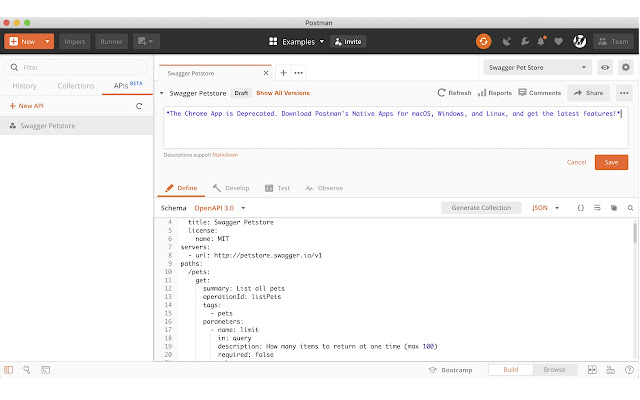
Limitations of Postman's Free Plan
When using Postman's Free plan without opting for a paid plan, there are several limitations to be aware of. Here are the main restrictions you’ll encounter:
- Limit on the Number of APIs Created: In the Free plan, a team member can create up to 3 APIs.
- Limit on API Calls: The Free plan allows the entire team to make only 1,000 API calls per month.
- Limit on Calls to API Mock Servers: Calls to API mock servers are counted the same way as regular API calls. The total number of calls must not exceed 1,000.
- Limit on Collection Runs: In the Free plan, you can run collections, which implement multiple APIs in one go, up to 25 times a month.
- Limit on Usage of Flows: The Free plan allows you to execute flows up to 5 times.
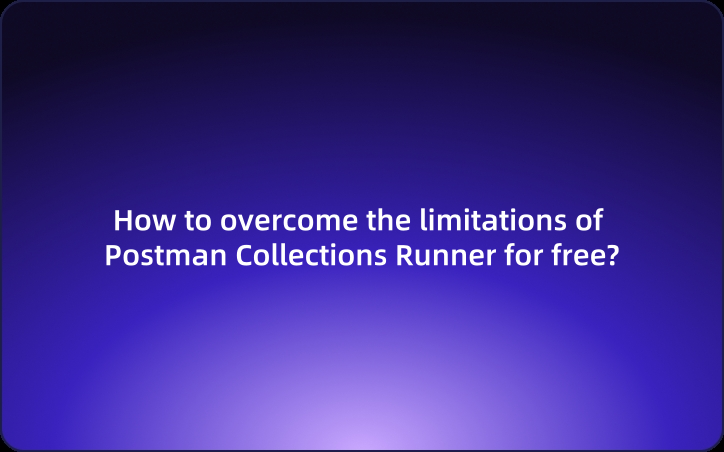
In the above, we introduced the main limitations of Postman's Free plan. If you reach the monthly usage limits of any item, you will see an error message that says, "You have reached the monthly usage limits of your plan," and you might not be able to continue using Postman without upgrading to a paid plan.
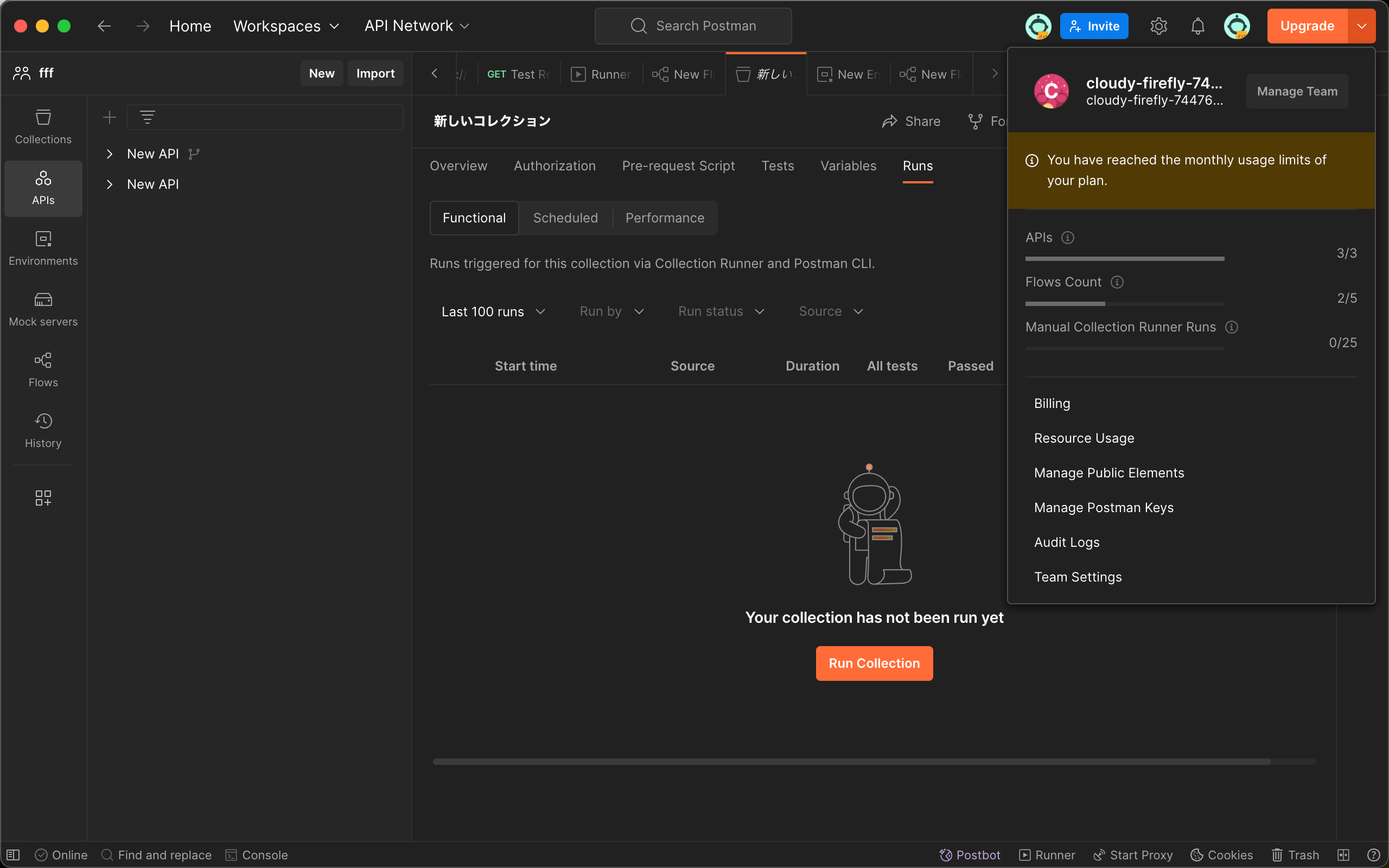
Postman Usage Limits
Postman offers four paid versions along with the Free plan: Basic, Professional, Enterprise Essentials, and Enterprise Ultimate.
In the Basic plan, the number of API calls increases from 1,000 in the Free plan to 10,000, and the Professional plan boosts that to 100,000. For collection runs, you can execute up to 25 times in both Free and Basic plans, while upgrading to the Professional plan allows 250 runs. Additionally, Google SSO, unavailable in the Free and Basic plans, is included in the Professional plan, and SAML is available at the Enterprise Essentials level.
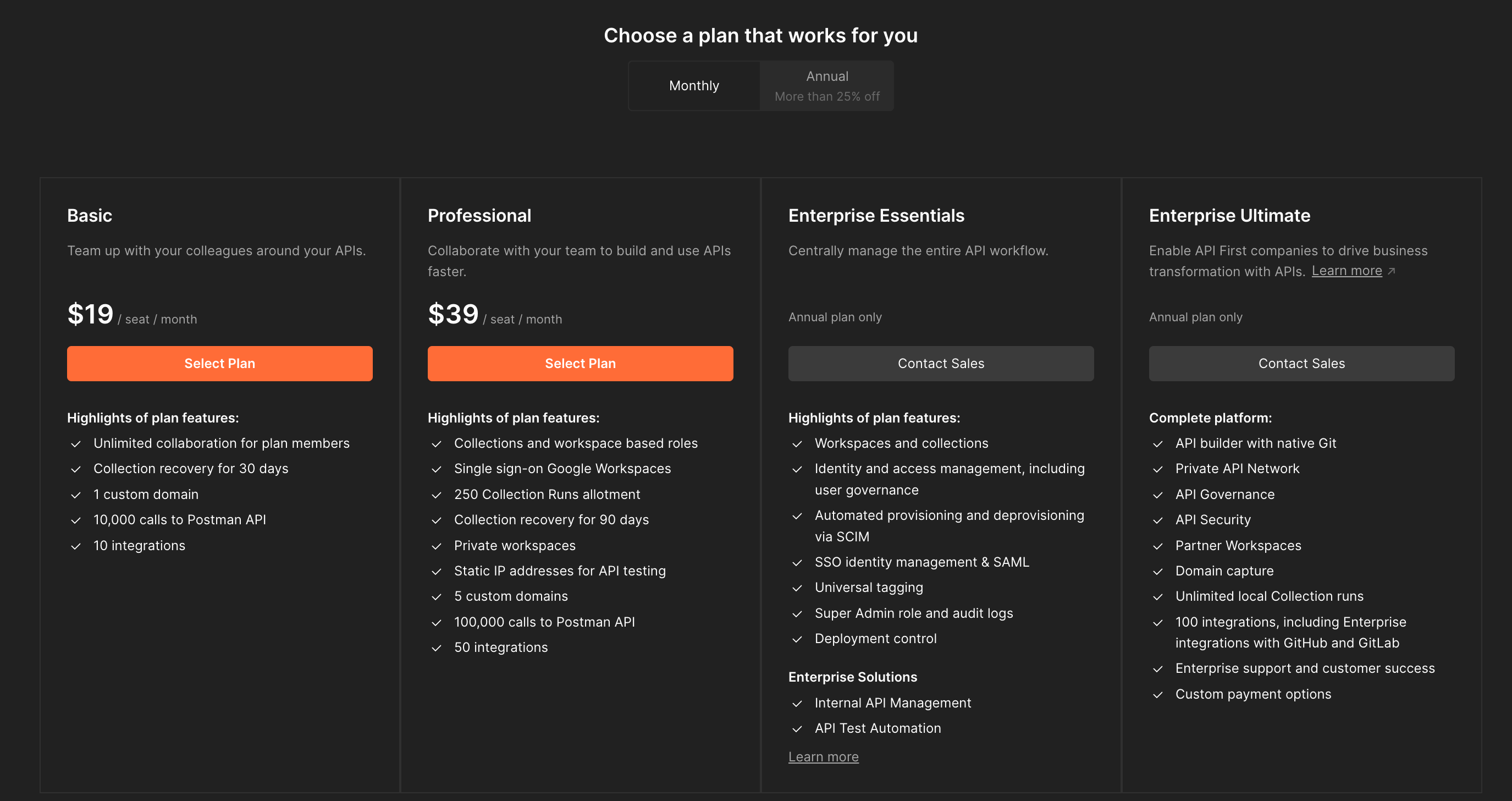
In this way, each of Postman's paid plans adds new features on top of those available in the Free plan or increases usage limits. For more details, check out the Pricing & Plans page on Postman's website.
Commercial Use of Postman's Free Version
While the free version of Postman has many usage limitations, it is sufficient for many users. These users might wonder, "Can I use the Postman Free version license for commercial purposes?"For these users, the Free version’s capacity is adequate, and if the free license can be used commercially, there’s no need to upgrade to a paid version, which costs money.
In conclusion, according to Postman's official support page, there are no restrictions on using any version of Postman for business or commercial purposes. Thus, the Free version of Postman's license is available for commercial use.
Source: Can I use Postman for commercial use?
The Best Free Alternative to Postman: EchoAPI
EchoAPI is an advanced and lightweight API collaboration development tool designed for API design, debugging, automated testing, load testing and mock servers. Most importantly, EchoAPI offers unrestricted access to API calls, creating and running collections, using mock servers, and performing script testing, allowing users to use these features for free. Additionally, like Postman, the free version can be used for commercial purposes.It's a perfect alternative to Postman.
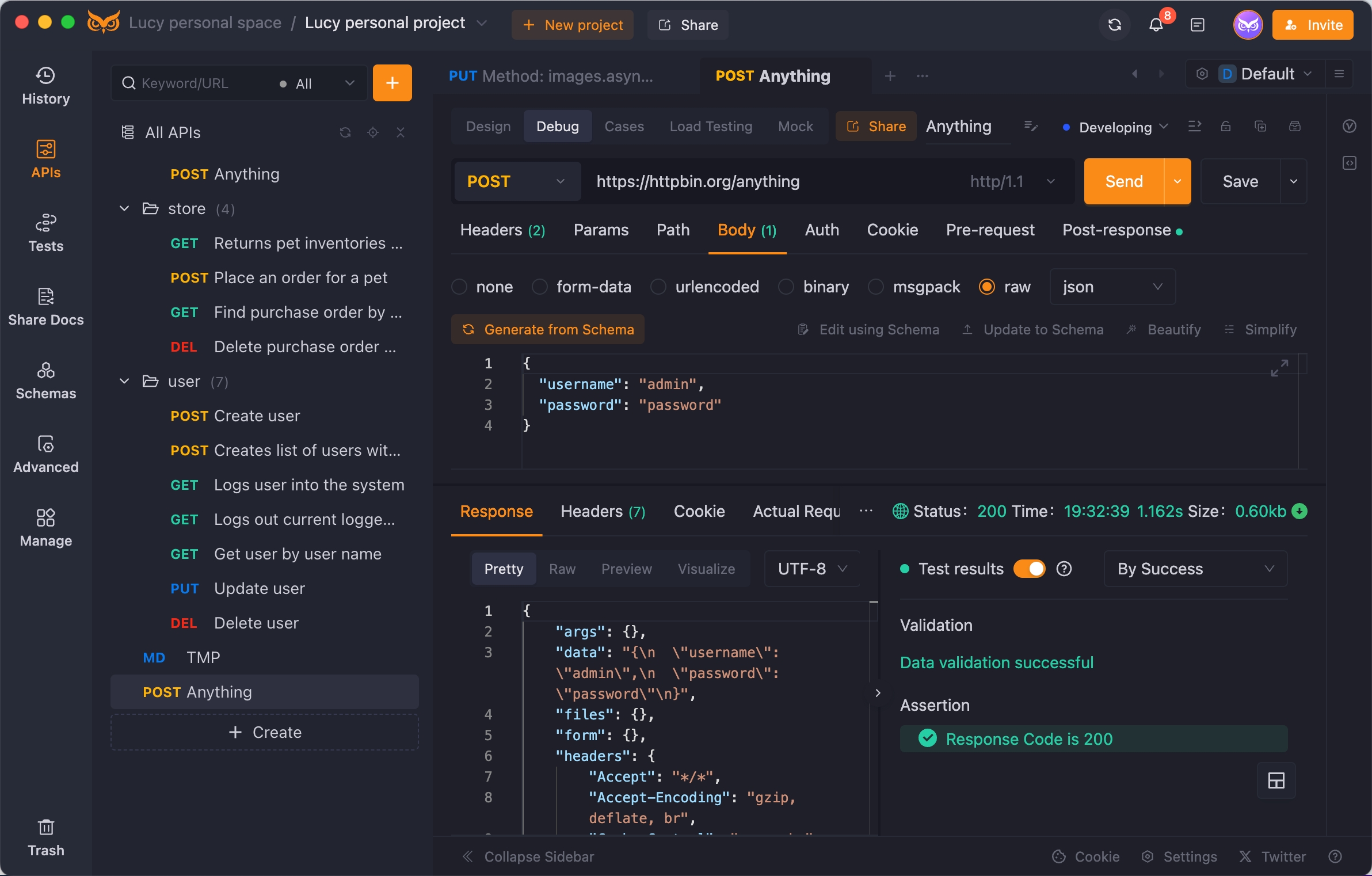
Feature example: With EchoAPI's automated testing feature, you can create API test scenarios and execute API runs as test steps. You can add test steps or group or branch them according to your needs. This means EchoAPI can seamlessly run Postman-like collection executions and workflows in one place while managing API communications and scenario tests, thereby enhancing productivity.
Plus,EchoAPI is supports Scratch Pad. it comes with plugins for IntelliJ IDEA(EchoAPI for IntelliJ IDEA), extension for VS Code(EchoAPI for VSCode), and a Chrome request capture extension(EchoAPI Incepetor), all without the need to log in.
Conclusion
Postman is an essential tool for API testing, but the Free plan comes with several limitations. The main restrictions include a cap of 1,000 API calls per month and only 25 collection runs. On the other hand, upgrading to a paid plan can alleviate these limitations. For instance, the Basic plan allows for up to 10,000 API calls per month. It also adds features that aren't available on the Free plan, such as Google SSO and SAML authentication.
If you're concerned about the limitations of the Free plan, you might want to consider upgrading to a paid Postman plan or use EchoAPI, a full-featured alternative tool that offers all features for free. EchoAPI allows you to perform everything from API testing to documentation creation, just like Postman, but without any cost.




 EchoAPI for VS Code
EchoAPI for VS Code

 EchoAPI for IntelliJ IDEA
EchoAPI for IntelliJ IDEA

 EchoAPl-Interceptor
EchoAPl-Interceptor

 EchoAPl CLI
EchoAPl CLI
 EchoAPI Client
EchoAPI Client API Design
API Design
 API Debug
API Debug
 API Documentation
API Documentation
 Mock Server
Mock Server







